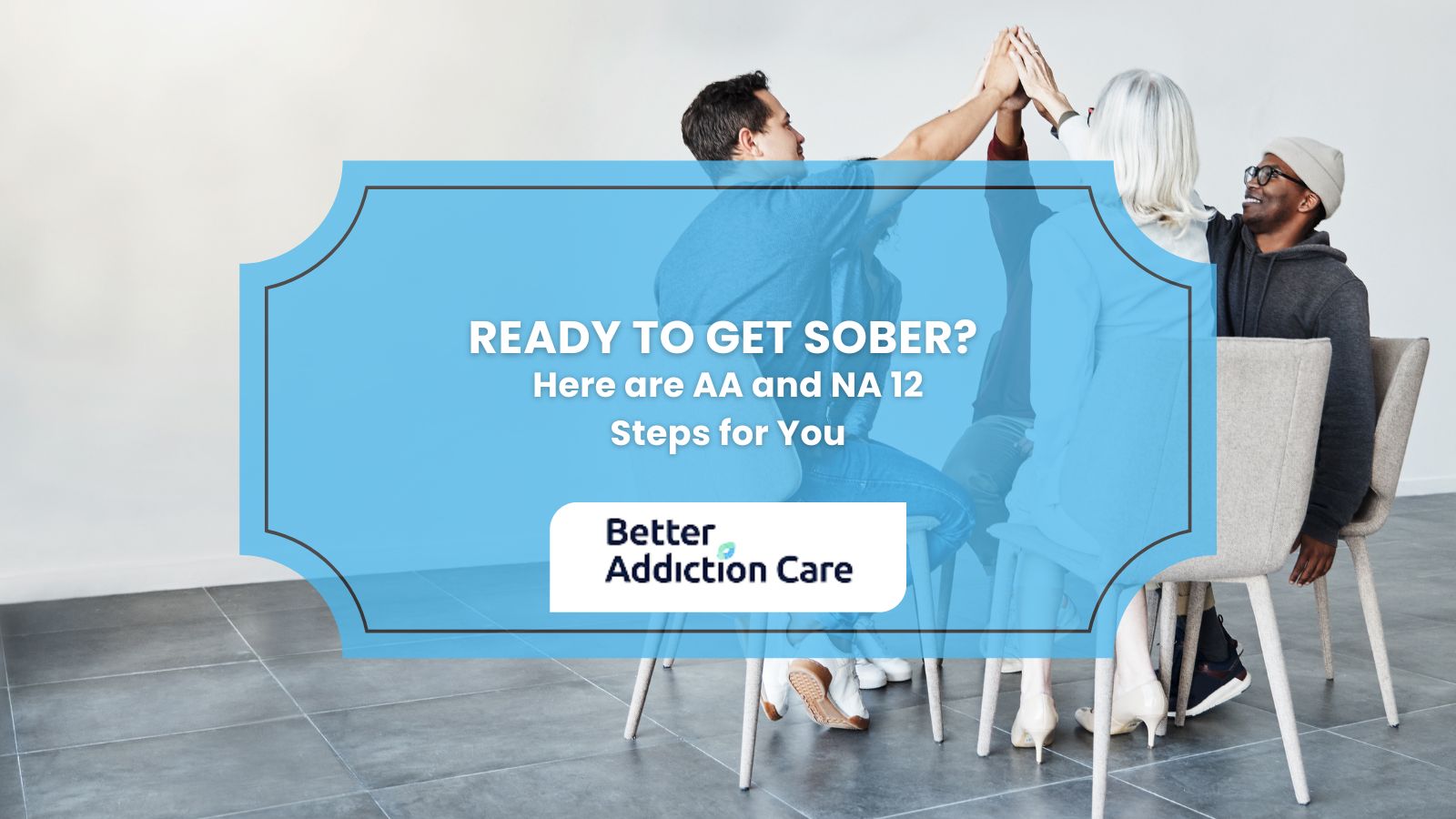Mastering Abstinence From Alcohol
How many people who are completely abstinent from alcohol do you know? Alcohol consumption is often socially encouraged and even normalized by our society. Pop culture and the media have even glamorized it. Nevertheless, people who choose alcohol abstinence are signing a powerful commitment towards better personal health and well-being. The benefits of alcohol abstention are numerous and not just focus on enhanced physical health, but a better quality of life.. This article aims to walk you through the benefits of alcohol abstention and give you some useful tips for practicing and maintaining abstinence.

Benefits of Abstinence from Alcohol
Abstaining from consuming alcohol offers several benefits to people who choose this lifestyle. Most of these benefits are often found in physical health, mental health, and social life.
Improved Physical Health
The harmful effects that alcohol consumption can have on your physical health are numerous. Excessive alcohol consumption can increase your risk of liver disease, heart problems, and even some types of cancers. Therefore, alcohol abstinence can positively impact your overall health. Alcohol abstention not only reduces your chances of experiencing the previously mentioned diseases but also improves certain body processes like sleep. Some of the undoubted and scientifically proven benefits that alcohol abstinence has on your health are:
-
Reduced risk of liver diseases (E.g., hepatitis, cirrhosis, and fatty liver disease)
-
Lower chances of suffering pancreatitis
-
Less risk of developing certain types of cancer (E.g., mouth, throat, esophagus, liver, colon)
-
Less chances of having blood pressure issues
-
Reduced risk of heart diseases (E.g., cardiomyopathy, arrhythmias)
-
Better immune system
-
Improved sleep quality
-
Increased lifespan
Enhanced Mental Health
Apart from the benefits of physical health, alcohol abstinence can significantly improve your mental health. Some of these benefits include:
-
Increased happiness
-
Reduced anxiety
-
Reduced depression
-
Improved stress management
-
Better cognitive function (improved mental clarity, memory, and concentration)
-
Increased self-esteem
Social Benefits
The social benefits that people who decide to practice alcohol abstinence are plenty and encompass several financial, productivity, and legal aspects. Some of the social benefits that alcohol abstention can have include:
-
Better family relationships
-
Enhanced productivity and performance at work or school
-
Financial savings from alcoholic beverage bills or alcohol-related health expenses
-
Improved safety due to decreased risks of accidents
-
Avoidance of legal problems related to alcohol
Tips for Practicing Abstinence from Alcohol
Once you start practicing abstinence, it is typically challenging to maintain your commitment due to different setbacks that may arise. Alcohol relapses are pretty common, and they can be a source of struggle for some people. However, people who manage to abstain from alcohol for 30 days are more likely to abstain from alcohol use for more extended periods, which results in tremendous benefits to their bodies, minds, and social life, as we have already discussed.
People often have different motivations for abstaining from alcohol. Regardless of your motivation, being a ‘dry January’ trend with your friends, a 30-day detox challenge, or a long-term lifestyle commitment to yourself, there are some practical tips you can take into account to overcome the difficulties of maintaining abstinence.
Set Clear Goals
Setting clear goals can help you to remain focus on your journey towards long-lasting abstinence. Sometimes, that ‘ultimate goal’ of not drinking ever again requires a lot of baby steps to get there. Having clear and concrete goals that seem achievable, is extremely important to give you a clear direction, motivation, and purpose.
When you are setting up your goals, try to be really specific and make sure that they can be measured. Consider that your goals should always be relevant and achievable within a reasonable timeframe. It is important to write them down, rather than just have them in your head, and review them regularly. Some good examples of clear goals to help you reach abstinence are:
-
Not drinking this weekend
-
Attend a support group meeting today
-
Practice guided meditations daily
-
Start a new hobby this month
Build a Support System
Having a good support system is imperative when practicing abstinence from alcohol. A strong support network can give you the emotional and psychological assistance that is needed to overcome potential relapses. Additionally, the motivation and accountability offered by your safety net can certainly increase your chances of achieving long-term abstinence.
Avoid Triggers
When you are fighting to abstain from consuming alcohol, there are certain situations, places, or even people that can trigger your old drinking habits. Therefore, you must do a deep self-reflection to understand what your triggers are.
Sometimes, changing your environment, the people you surround yourself with, and your bad habits can help you avoid the triggers that can tempt you to relapse. Keeping yourself busy, meeting new people, and cultivating healthy habits can also help you remain committed.
Navigating Social Situations
Throughout your abstinence journey, you might encounter challenging social situations that may tempt you to have a small sip of alcohol. Some examples of these social situations that can make you break your commitment are a night out with friends, your sister’s wedding, or your nephew’s graduation party. While you do not necessarily need to skip these social gatherings, you may want to plan ahead and have simple responses or strategies that can help you avoid alcohol.
Track your progress
Tracking your progress and milestones is vital for remaining abstinent and sober. A detailed journal of your achieved goals, future objectives, and potential setbacks can help you maintain your focus and motivation on your abstinence journey. It can also help you understand what you need to improve or avoid.
Developing Healthy Coping Mechanisms
Building healthy coping mechanisms can help you deal with alcohol cravings, negative emotions, and tough situations during your abstinence journey. Some of the most popular coping mechanisms among individuals who practice alcohol abstinence are:
-
Journaling
Seeking Professional Help
Sometimes, the pressure of remaining abstinent and the fears of relapse can be overwhelming. You must know that you do not have to go through this alone. It is always advisable to seek professional help whenever you struggle to maintain your commitment.
A healthcare provider can provide you with professional strategies such as cognitive behavioral therapy (CBT), motivational interviewing (MI), and stress management techniques that can support you and help you stay committed to alcohol abstinence.
Be patient with yourself.
Finally, always remember to be passionate and compassionate with yourself. Practicing and maintaining abstinence can be challenging for some people. You should feel proud of yourself for committing to quit alcohol and for the difficulties you have overcome towards abstinence. Be patient, trust the process, and always be kind to yourself!
Resources for Maintaining Abstinence from Alcohol
There are a wide variety of support groups, organizations, and resources available that are specifically designed to help maintain your abstinence from alcohol. The following can provide helpful advice, educational materials, and practical strategies to help individuals practice alcohol abstinence:
Conclusion
Alcohol-related problems are associated with devastating consequences for the individuals struggling with them. Alcohol abstinence, on the other hand, can have several benefits to your physical health, mental health, and social life. It is crucial to understand these benefits and encourage people to seek abstinence and sobriety to prevent alcohol use disorders.
If you are looking to get sober, practice alcohol abstinence, or seek help for a loved one who is struggling with alcohol, Better Addiction Care is here for you. Call our 24/7 helpline at (800) 429-7690 and get help today!
Related Articles
Treatment Centers in New Jersey
 123
123
 123
123
 123
123





